Guest Column: “To Hear Your Stories, and to Learn”
April 11, 2018
The following is a guest column by junior Brigid Hanley, who participated in the Arizona border immersion just before Spring Break.
The Comedor in Nogales, Sonora, a town just south of the border between the United States and Mexico, is small for a soup kitchen, but feels cozy instead of cramped, and is alive with color. A mural of The Last Supper adorns the back wall, unique in that all of the disciples breaking bread with Jesus are immigrants, with bulging backpacks and brown skin, and like Jesus himself, Hispanic.
The tables in the center of the room have bench seating, the plates, cups, and bowls are humble, made of plastic in rainbow shades, and there are two closet-like bathrooms. Though it doesn’t look like much, this place will give the many men, women, teenagers, and small children that pass through for a meal and medical attention an invaluable resource that the rest of their quest for a better life through illegal immigration will deny them: their human dignity.
I had so many expectations about being here, face to face with the “illegals” that until now I had only known as fragments of news, radio, and movies; known about in the way of fictional characters with problems far removed from my world, but none of those expectations had prepared me. I had been waiting for this moment for weeks, wondering how I would feel, meeting them, wondering how they would react to our group from La Salle Preparatory, to me, and my white, American privilege. As the Comedor opens for the evening meal, which I am supposed to be serving, I feel out of place, jittery with unexpected nerves and unsure of what to do with my hands. They don’t really need us, I’m thinking.
It seems as though we’re just here to insert ourselves into something we have no right to be a part of: the pain of these people. Sweat starts to collect at the nape of my neck, and I remove my hat, scrambling for a way to convey to the line of haggard people entering and looking for a seat that I respect them. My eyes dart down to the floor and across the walls, not making eye contact, trying not to stare. A hush falls over the diners as a middle-aged woman, dark hair streaked with silver and tan skin weathered by the desert sunshine, takes a microphone at the back of the room. She addresses the crowd in Spanish, welcoming them to the Comedor and reviewing the general procedure and rules in this place. Then, she asks everyone a question that surprises me.
“Can anyone tell me about your rights? Can anyone name any of these for me?”
This, apparently, is part of the routine of meals at the Comedor. Some of the people have been through this before; they begin to call out answers.
“Yes, you have rights, guaranteed, on any soil. Not because you are a citizen of a country, but because you are human.”
I feel floored. It is such a simple thing, but this reminder, that as a human being each person in this room has inherent worth and undeniable claims, is immensely powerful.
And the Comedor acts to affirm this human dignity; my group, we are now acting to affirm this human dignity, by serving these migrants. After days, maybe weeks in the brutal desert sun, the loss of a family member, a life’s savings, or all of their hope—after rape, drugs, murder, fear, hope, prayers, and tears—their meal is carried to them, someone smiles in their direction, and someone offers to bandage their bleeding wounds.
The woman turns to the corner of the room where I stand, and gestures to our group. She calls for one of us to come up to give an introduction. I feel a nudge and look over my shoulder, where a few people are giving me the eyes like, “you go”. I know I could wait it out, and someone else would go instead, but despite my nerves, I have a sense that if I don’t make my feet move, if I don’t take the mic, I’ll come to regret it.
So I make myself travel the aisle between two tables, still unwilling to look to my left and right at the migrant faces, to the woman before me, holding out the mic in the near silence of the room. I had been frantically practicing my Spanish sentences in my head, but as my slick fingers close around the cool base, as the slow breath I suck in echoes through the speakers in the room, my mind goes blank and all I can spit out is “Hola”.
And twenty voices hear me and respond: “Hola”.
I pause. It must be half a minute, I stand there, in shock, looking, really looking, at all of their faces, all of their eyes, looking back at me. Some are smiling, encouragingly. Some are old, with whitening hair and deep wrinkles running through their features. Some look my age, or younger, and blink curiously at me. Some just stare without expression. But all of them are looking.
I said hello, and I hadn’t realized it, but I wasn’t expecting a response. I expected these men and women to resent me. Who was I to stand in front of them? They had been through so much I couldn’t hope to understand.
The strength of their voices together in hello filled me with what can only be described as awe. And now, I find that I can look at them, and that they too, are giving me the respect of their gaze.
Then, I launch into my little speech. Hello. Um, yes. We are here from La Salle Preparatoria in Portland, Oregon.
I pause again.
I had planned to say something like: “We are here to serve you.”
I don’t say it.
Instead, what comes out of my mouth is: “We are here because we want to hear your stories, and to learn.”
But this is the truth. We are offering what each of us can to the others, giving of ourselves out of that mutual respect derived from our inherent human dignity. I can serve these deserving people a hot meal, but more importantly, I can listen, care, learn, and hopefully work to make a change that will alleviate the suffering of migrants. They can grant me the honor of a small window into their dreams for a better life, and their sorrows. One man I talk to is preparing to cross the border, by trudging for days under the mercy of the sun in the treacherous desert at the ripe age 83, but needs special medical care for his high blood pressure. Another will take his chances by train, and though he has recently been deported and trying again means years in an American prison, he tells me he has always dreamed of travelling the world, and he will make this next attempt into “an adventure.” He asks me how old I am, and smiles wistfully when I say I am 16.
I came to the Comedor prepared to offer my time to serve people in need. I left the Comedor with more than empty arms and time spent. I will be forever changed by the lesson those migrant men and women gifted me with through their stories: a lesson of mutual, human, respect.


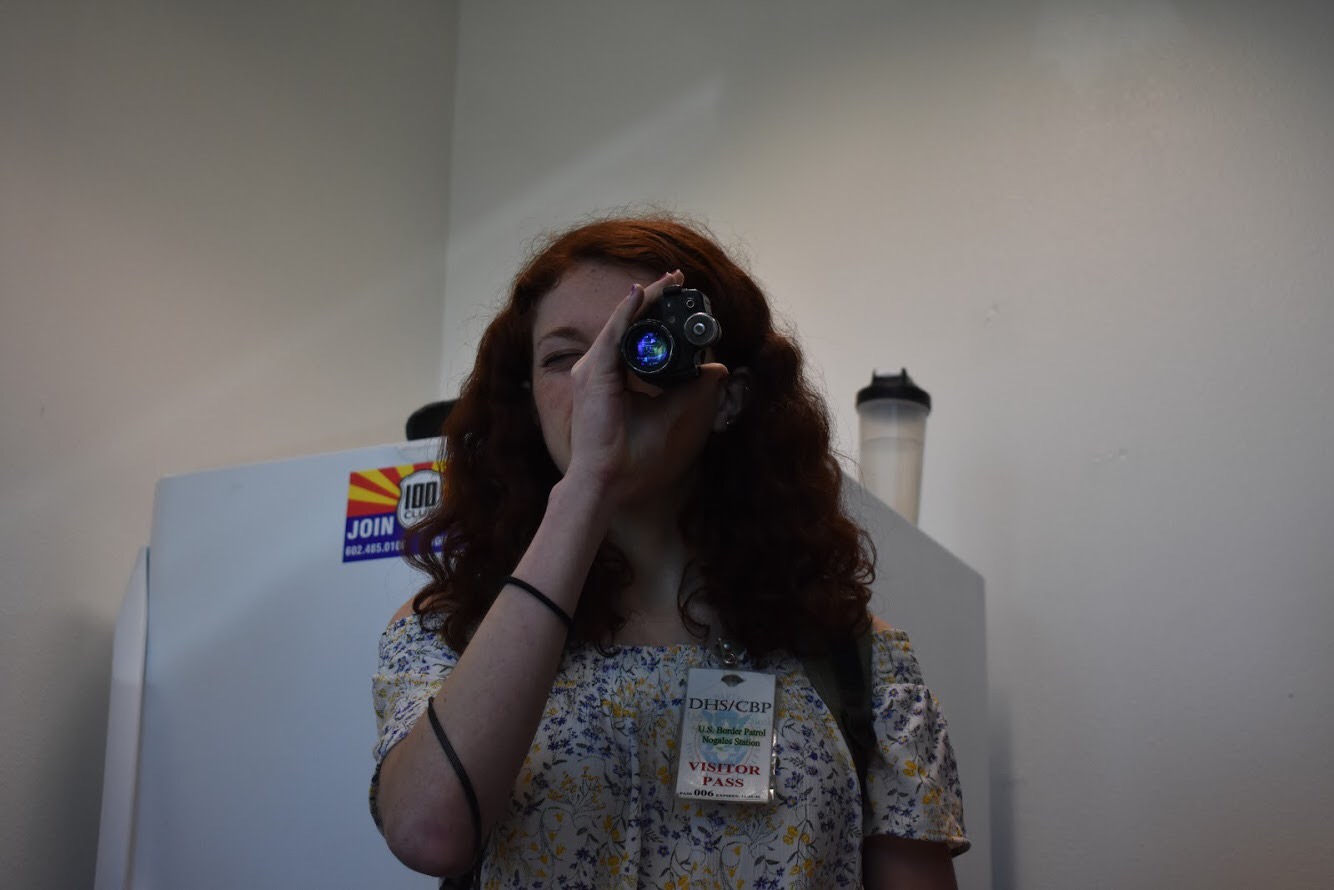

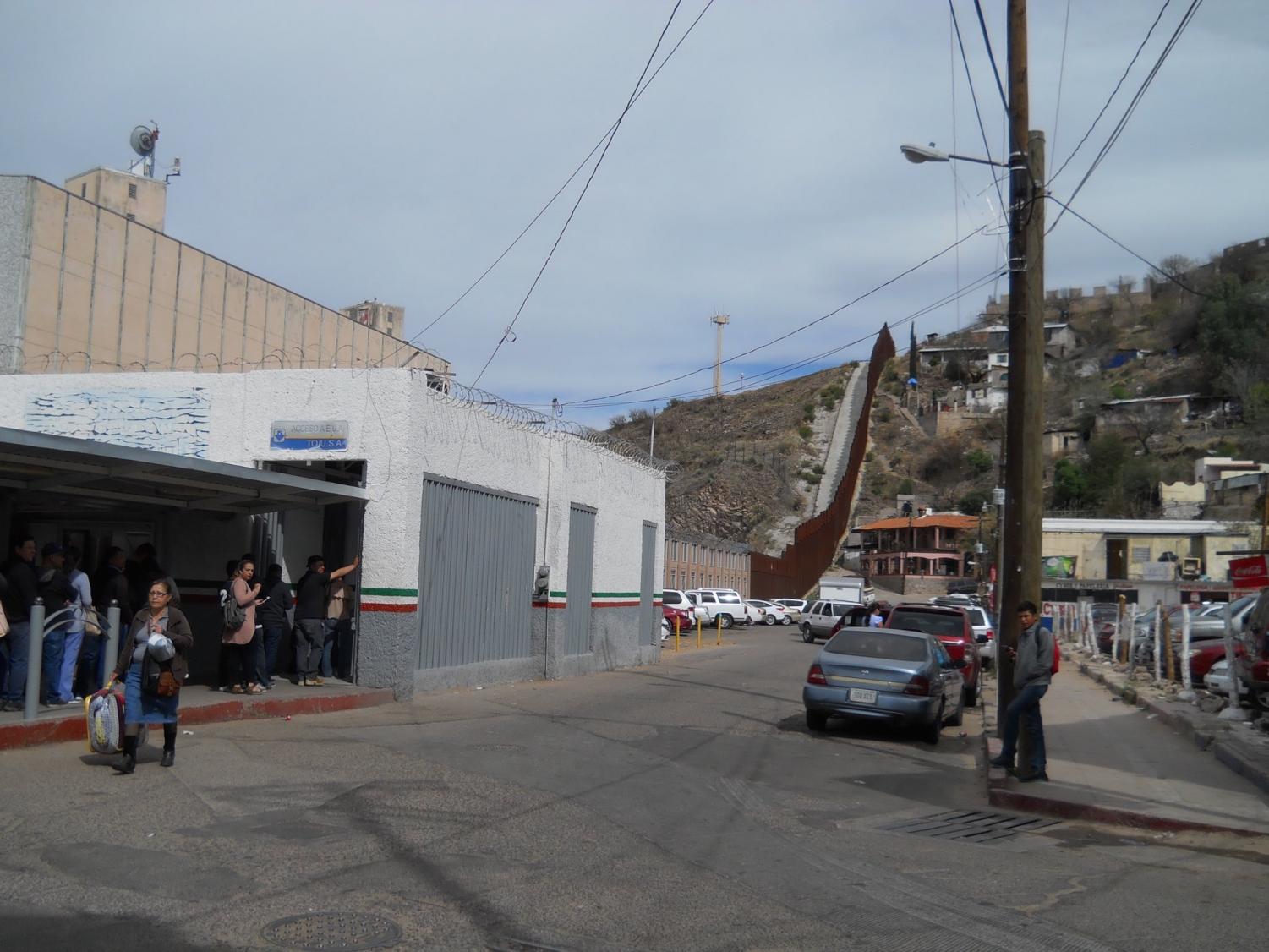
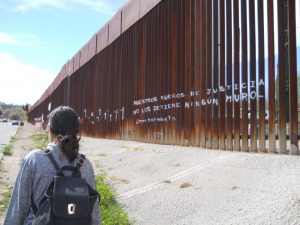
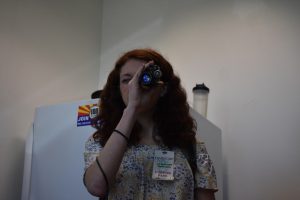
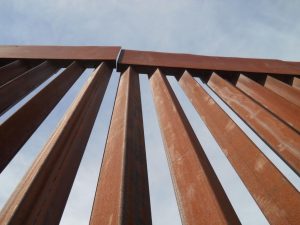
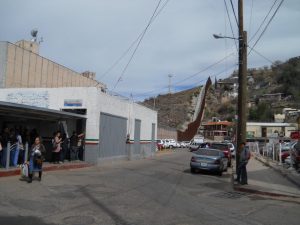



Andrew Kuffner • Apr 11, 2018 at 7:25 pm
Brigid, I can think of very few things more important in life than the lesson you so beautifully articulate in this column. Thank you for sharing your story and congratulations, you have been given a powerful blessing through the “inherent human dignity” you offered these people.